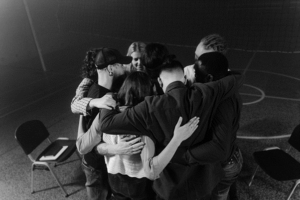
Addiction recovery is challenging, but it is even more difficult when you are trying to do it on your own. It is important to have someone there for you that can help remind you of why you are doing this in the first place. A support system also helps provide encouragement and inspiration which will fuel your recovery process. A support system may be necessary for both mental and physical recovery.
Finding The Right System
It is vital to have a support system when you are trying to recover from an addiction. A support system can be created right in your home, family, friends, and loved ones. On the other hand, if you don’t have a group of supporters from your environment, then considering a proper rehab in the institution might be your solution. And you don’t have to worry, these places today are much more technologically advanced and more open to the public. They can help remind you of your goals and what you’re fighting for – a clean and sober lifestyle – every day until your treatment is over.
Rehab Centers
As you go through the different stages of drug rehab, your team of supporters will become more evident and crucial to your recovery. You begin forming new bonds in therapy sessions with people who have been in the same situation as you are now in. These encounters can provide a strong foundation for a healthy support system in which each member shares their experience and testimonies to motivate each other from time to time. In addition, they understand the challenges that one might be going through during this difficult time. This rehab facility in Phoenix quickly became known for being one of the premier free detox centers in Phoenix, Arizona.
A Support Group

A support group provides a sense of community where members feel understood and accepted no matter what their circumstances or past experiences might be. Members often find they receive emotional, social, spiritual, intellectual, and practical support from others who “walk the walk.”
Here are some common goals of support groups within rehab centers:
- To feel more connected to people who are affected by the same problem
- To have an opportunity to discuss challenges and successes with others who understand
- To hear how other people approach their addiction or situation differently than you might have tried before
- To grow in self-awareness through feedback from others
The feedback loop created by sharing stories of addiction’s grip with other addicts creates an environment of mutual understanding and freedom from isolation. It is also a place where it’s easier to be more honest about personal feelings of shame, failure, and fear.
Encouraging Others
Those who have experienced the journey of recovery often find that they are more compassionate toward others who are trying to recover too. When you have substance abuse disorder, you may tend to isolate yourself from your friends and family because you don’t want them to see you fail. Thus, by being supportive of others, not only will they feel comfortable enough to open up, but it can inspire them even more after realizing how much support is out there for them as well.
When supporting other people on their journey, make sure that you don’t impose yourself, but rather give a personal example. They don’t need another person telling them what to do and how to do it; they might just need someone that can relate and show that recovery is possible.
After the Recovery
Once treatment is complete and you return to normal life, it’s important that you stay connected to those who were part of this journey. The support group can continue promoting a healthy lifestyle and encouraging each other with newfound experiences and knowledge about addiction and recovery. Without these connections, the chances of relapsing are more likely. Therefore, stay in touch with the people you’ve met, and keep your relationships strong.
Support is vital to fully recover from an addiction. You need someone that can be there for you at all times, especially when the going gets tough; having a reliable partner will show you that you’re not alone with this battle and keep your spirits up even on the hardest of days. Don’t settle for anyone, find the support system that’s best suited for your needs so you’ll know it’s giving 100% towards your recovery each day, whether it’s a group of your close people or a clinical, professional help of supporters.






